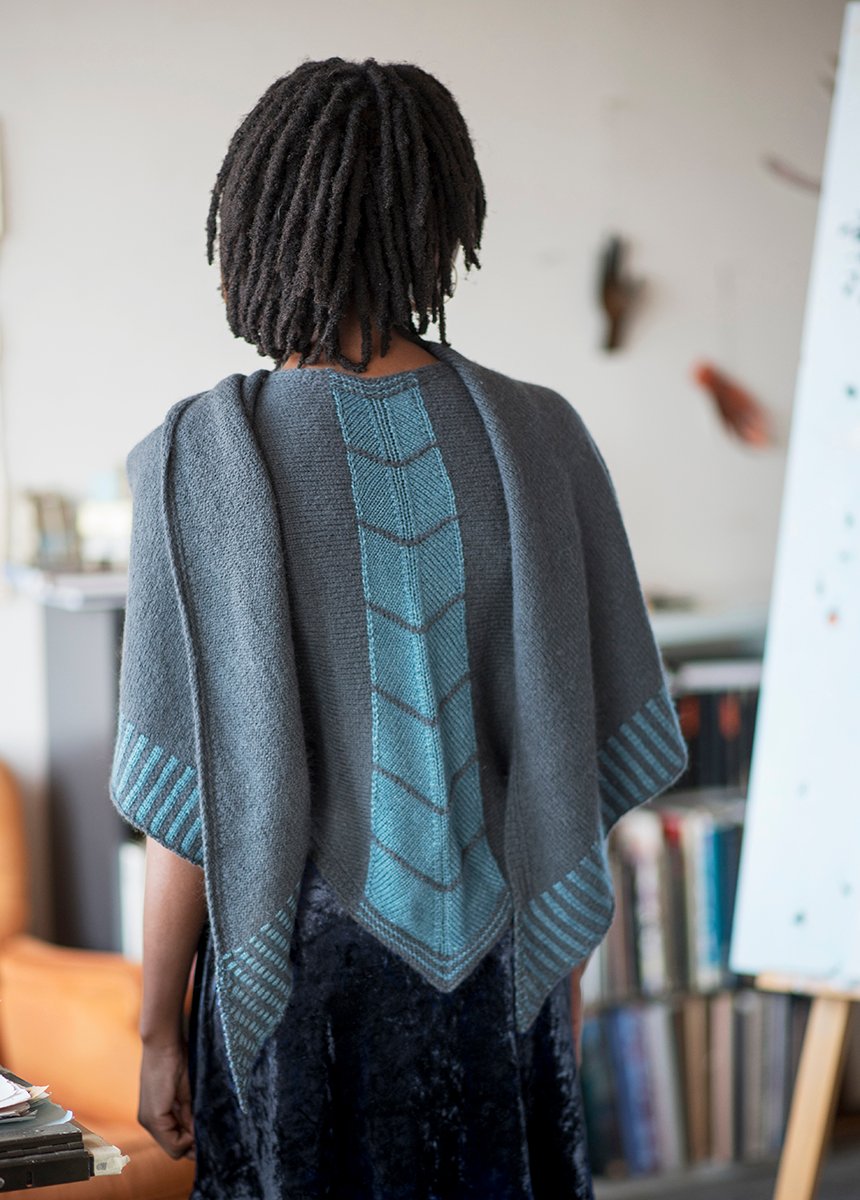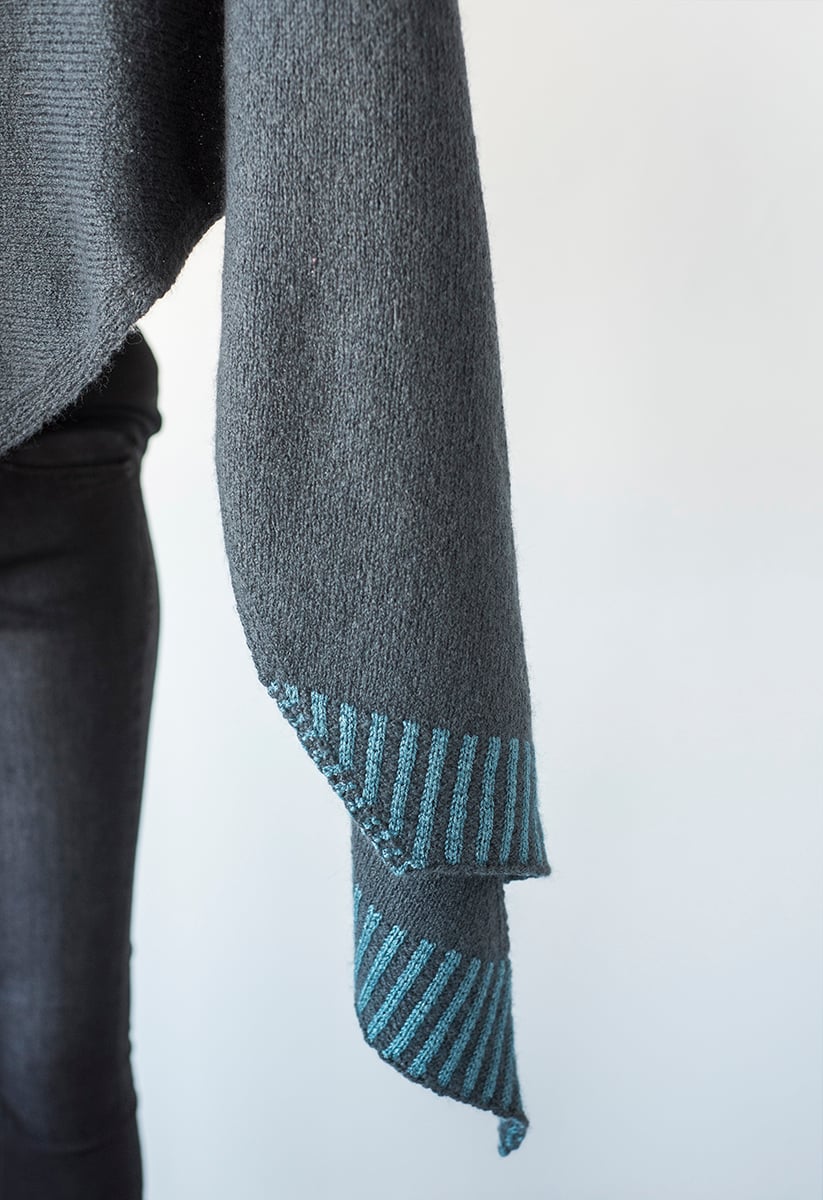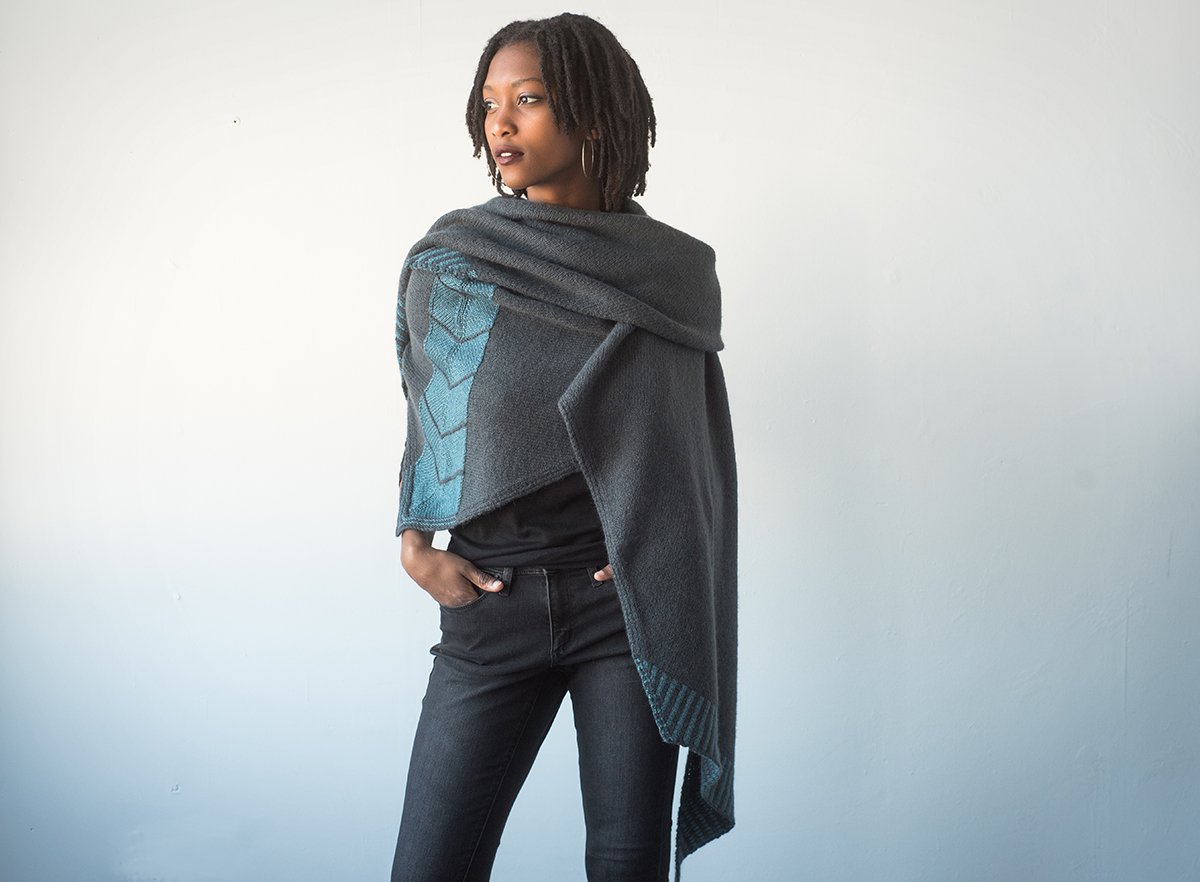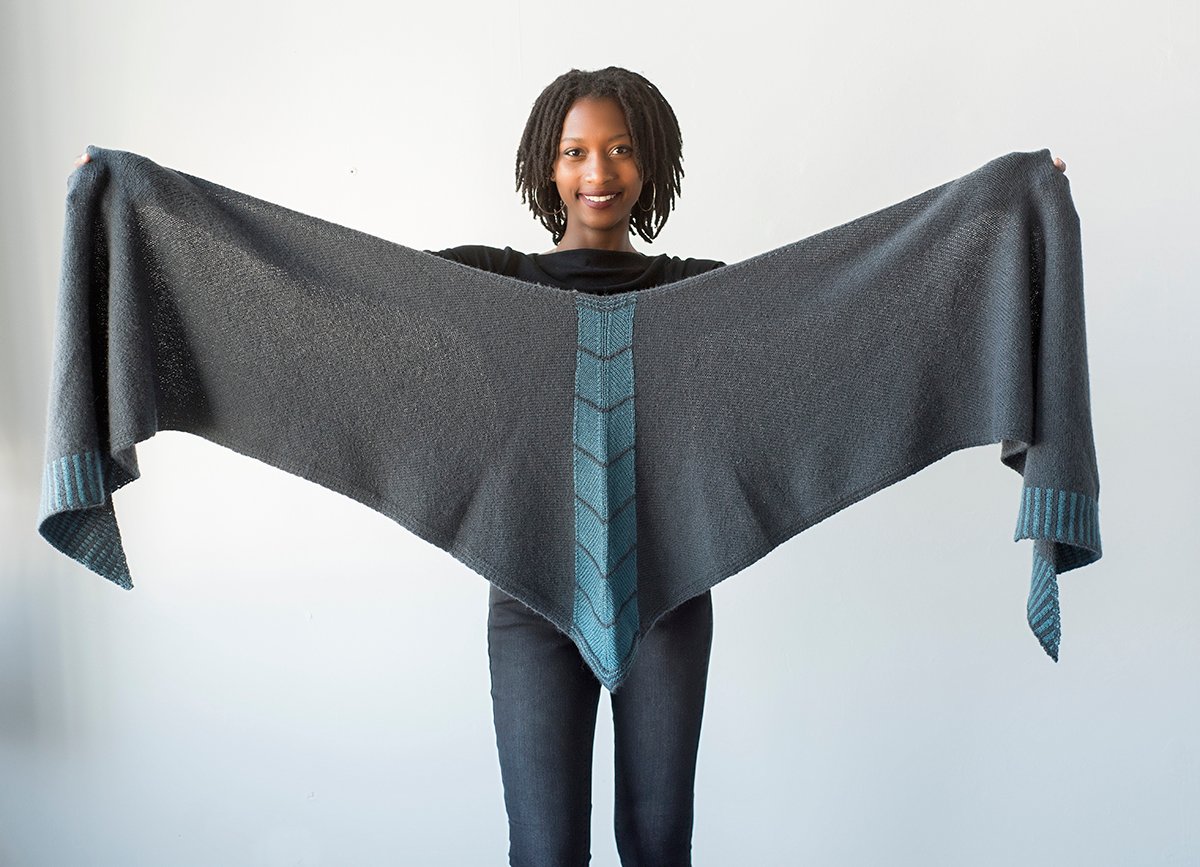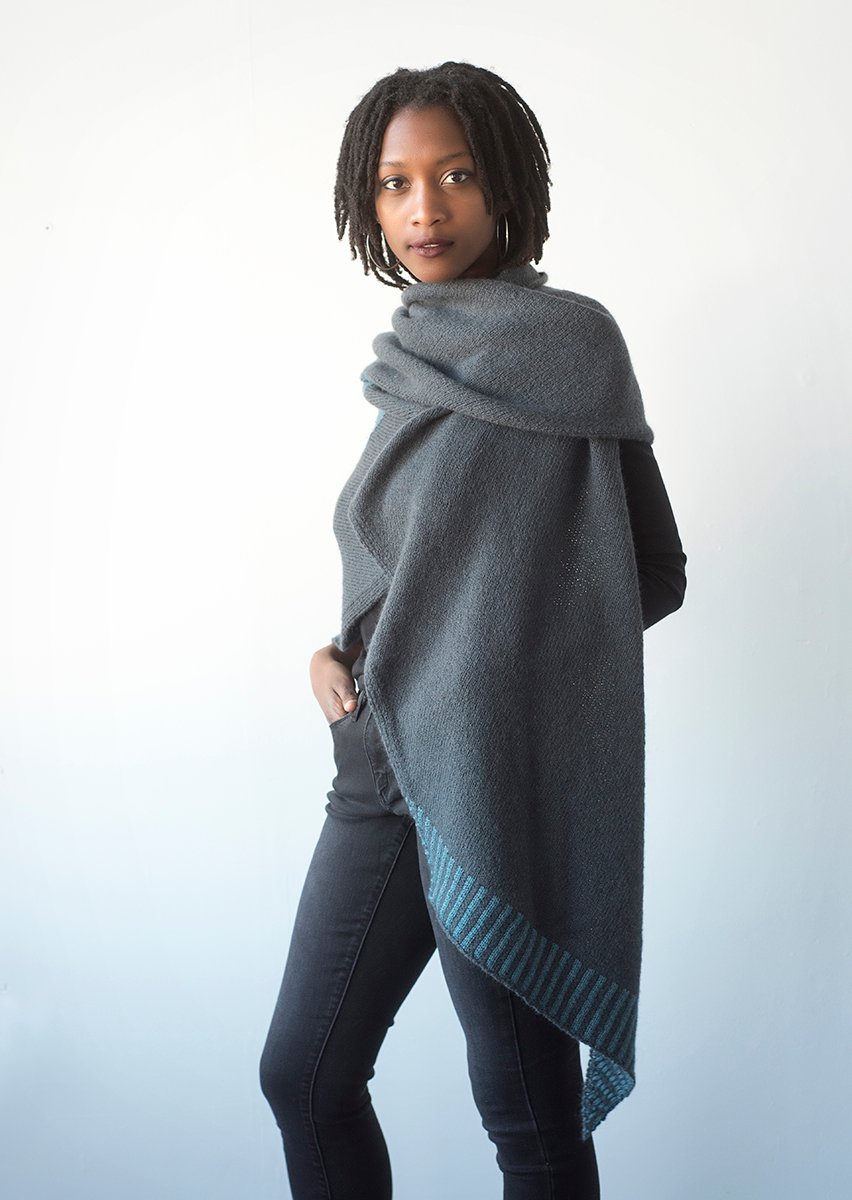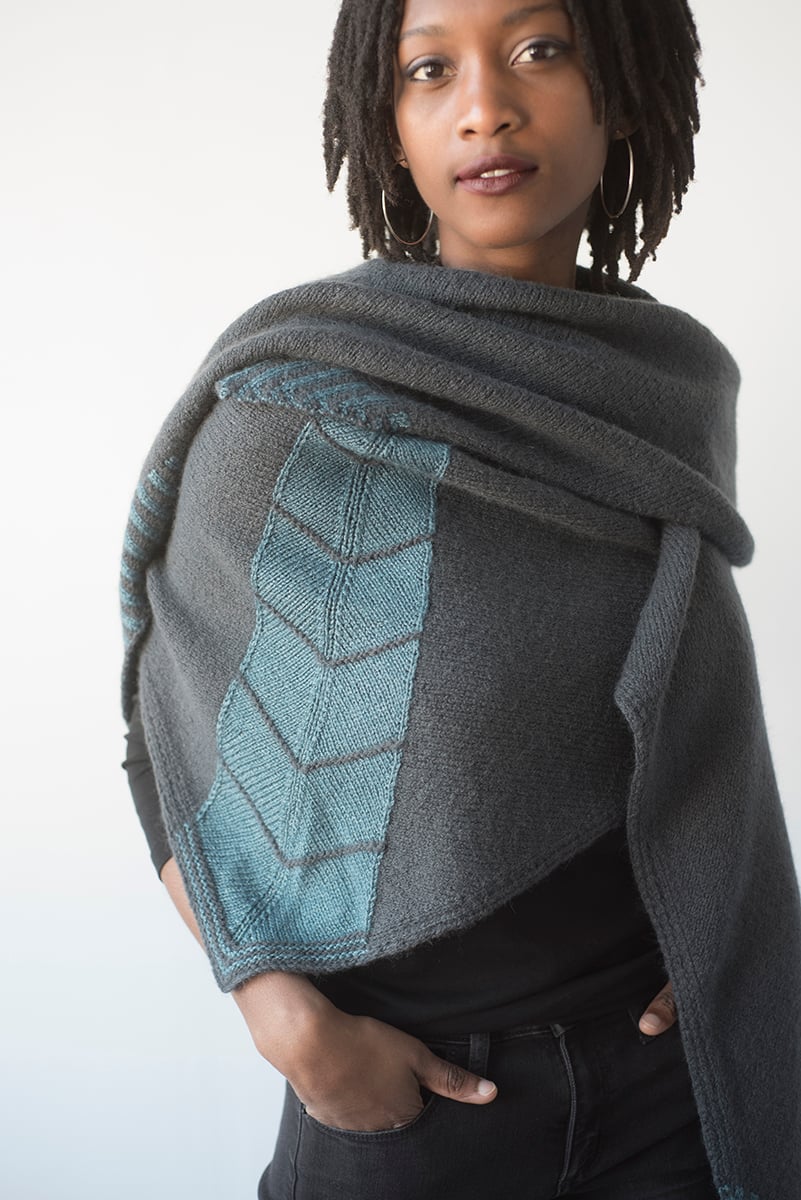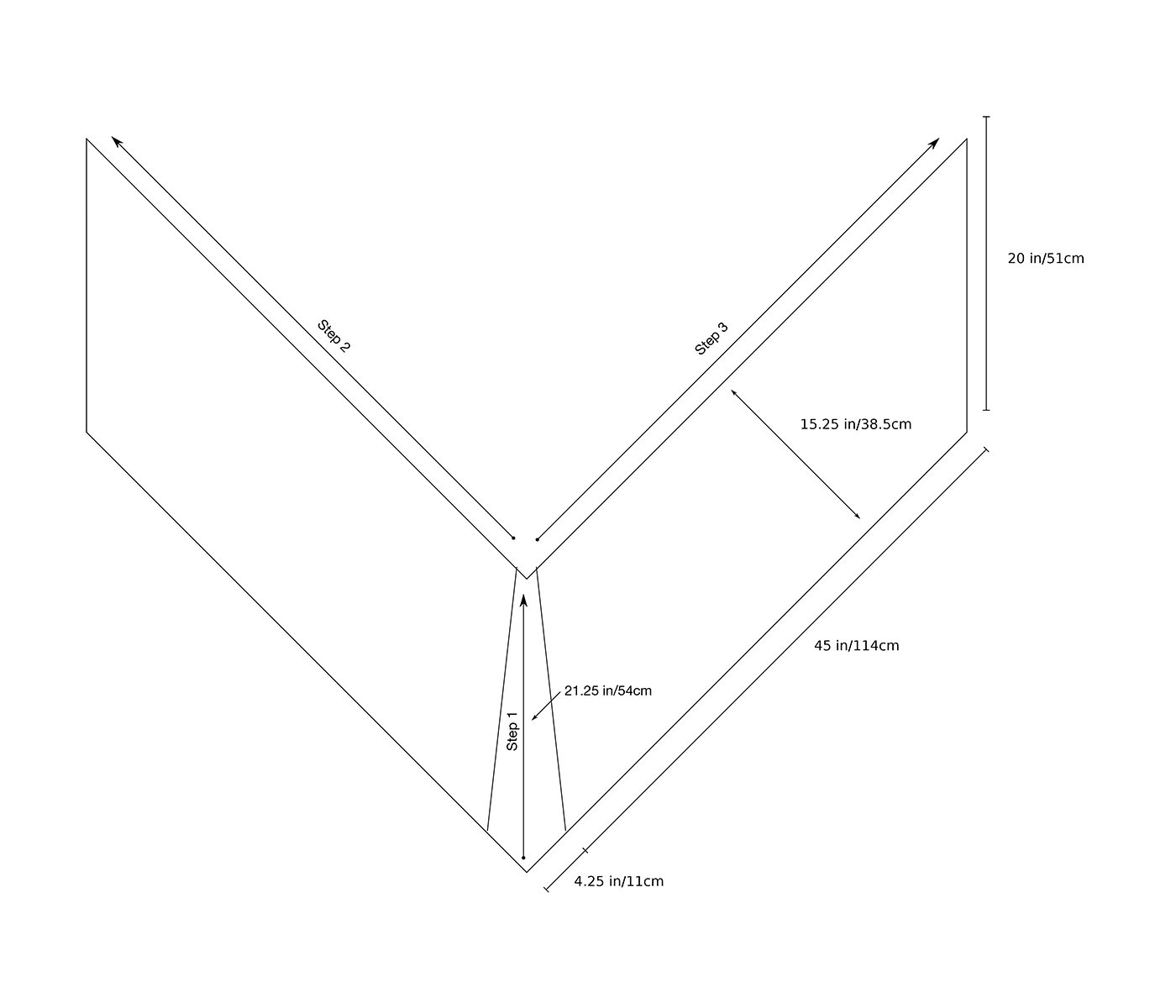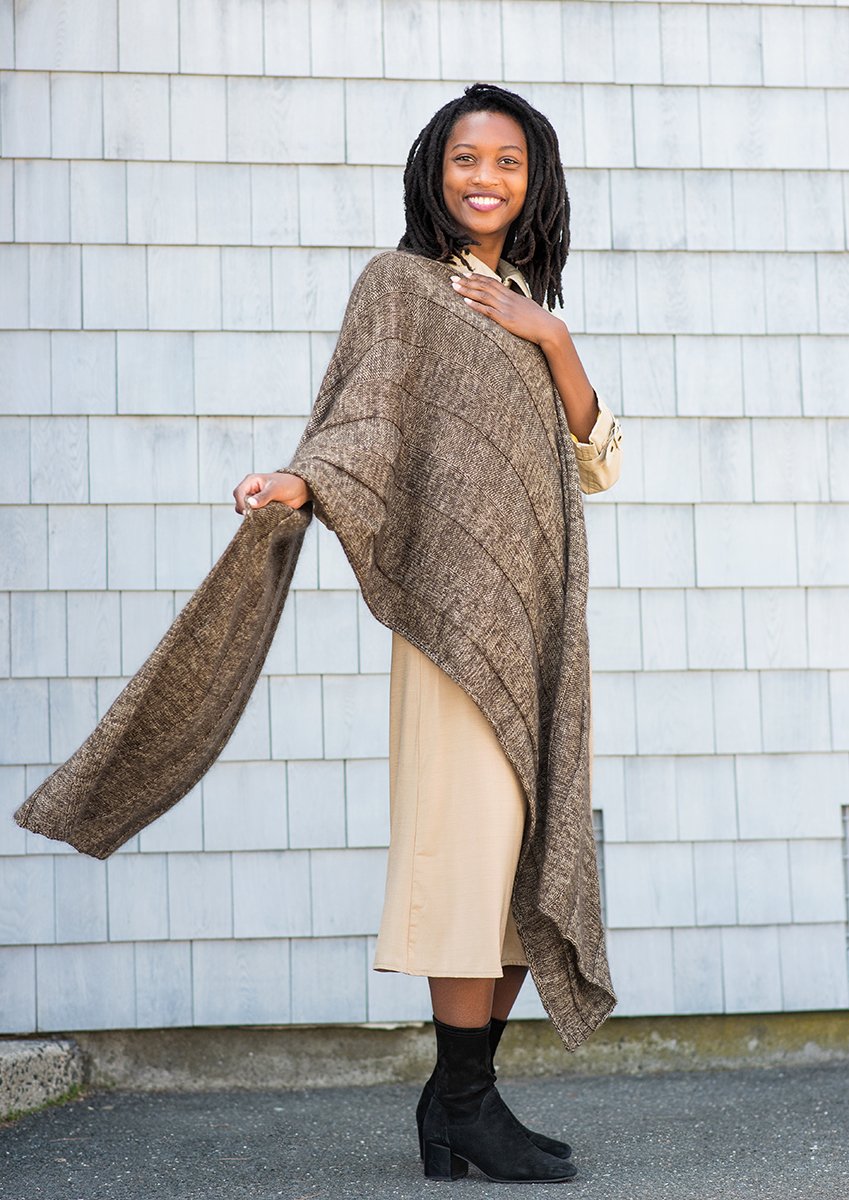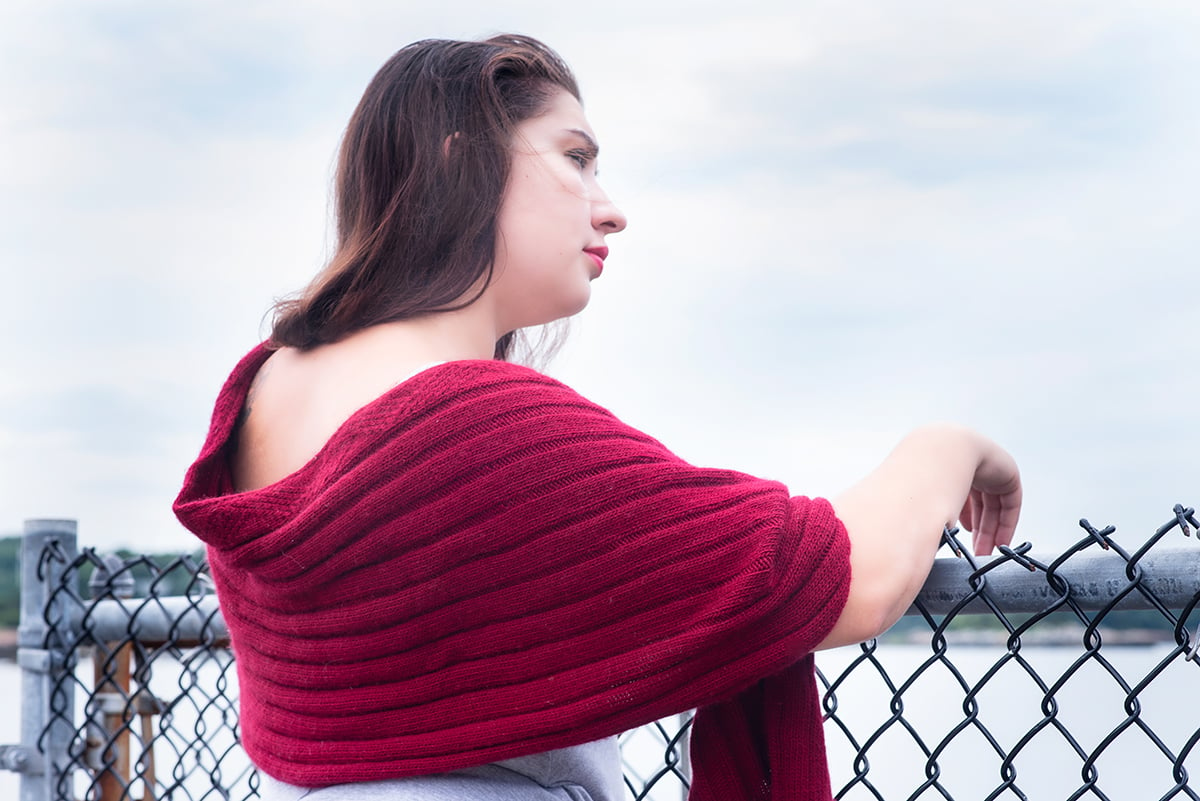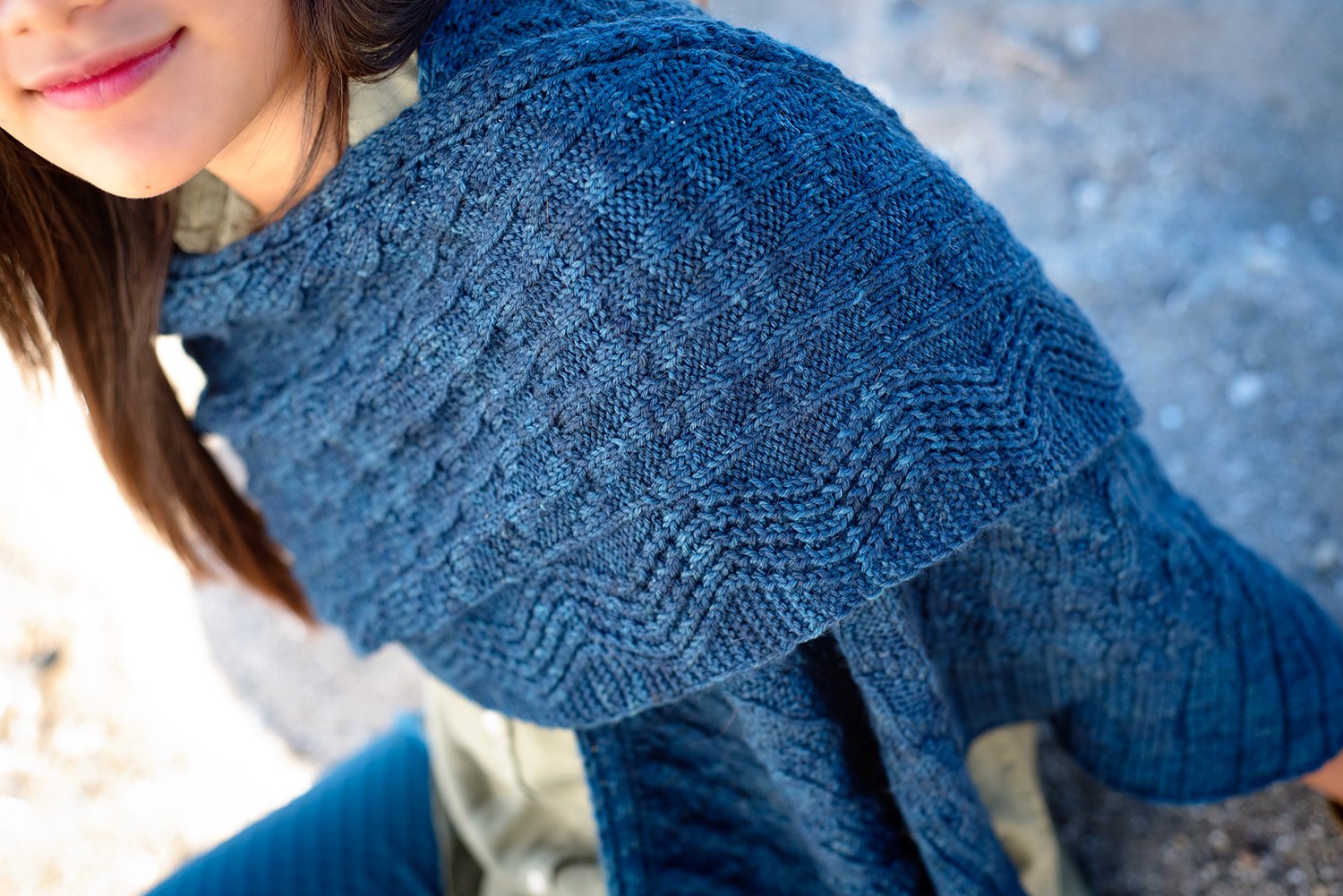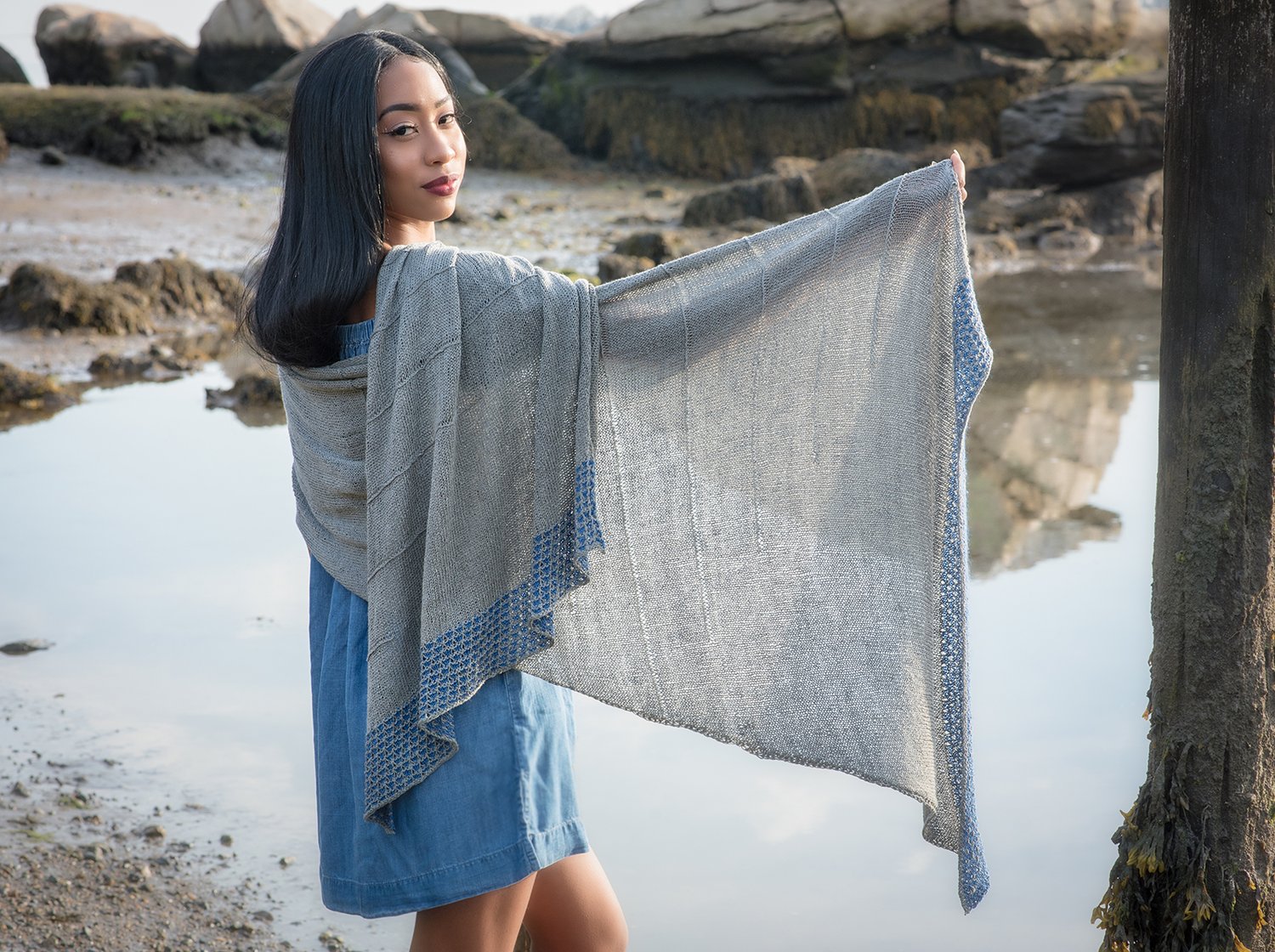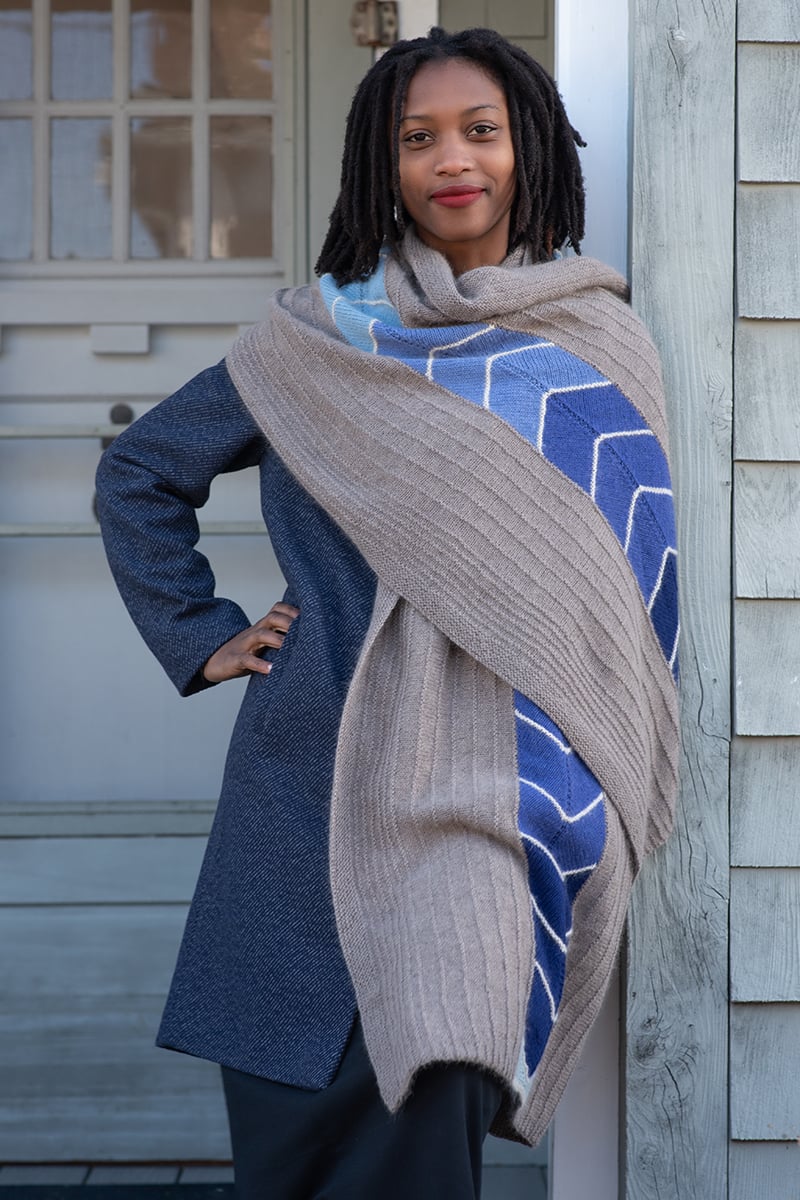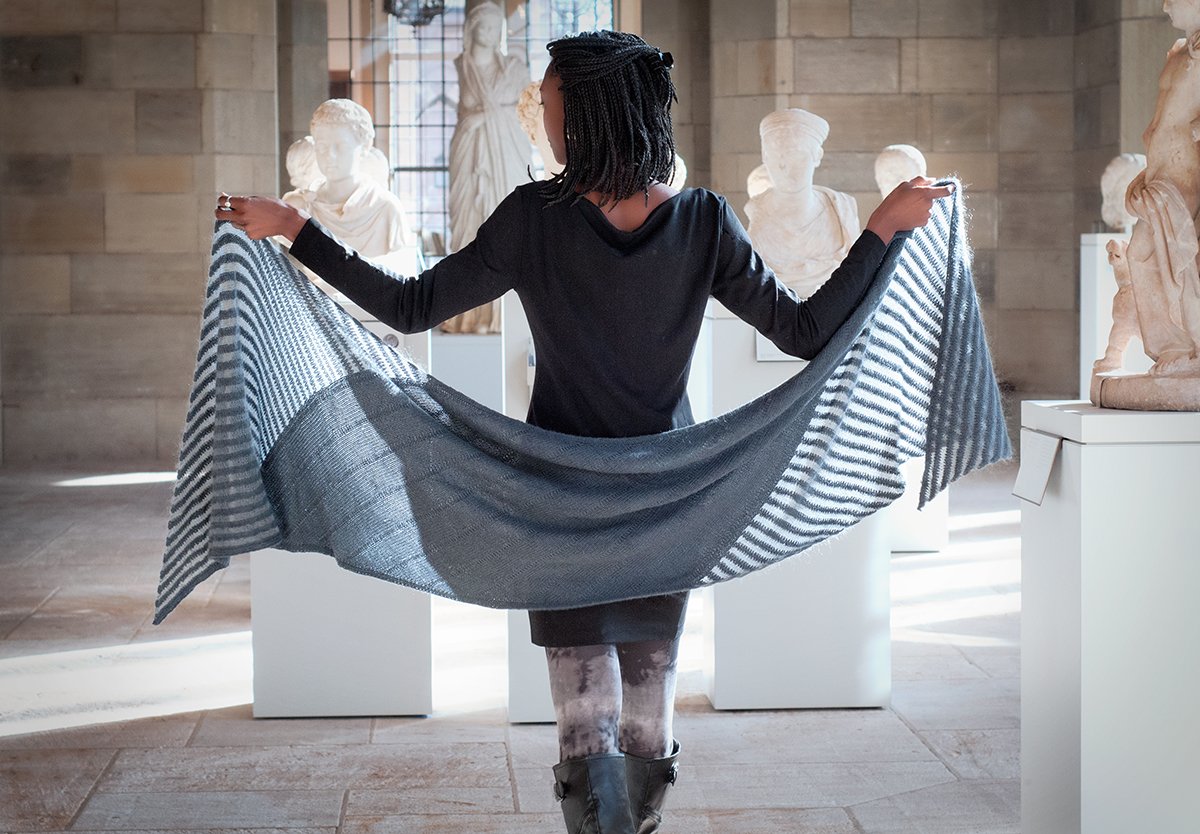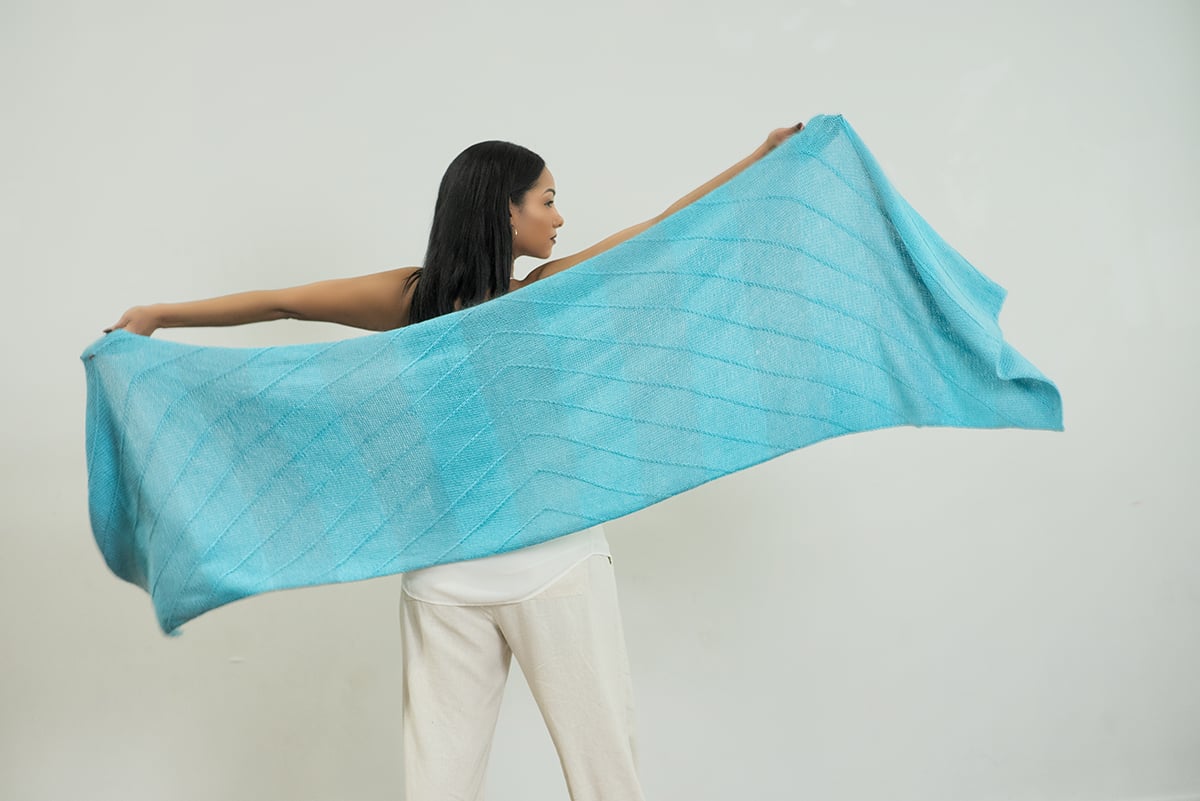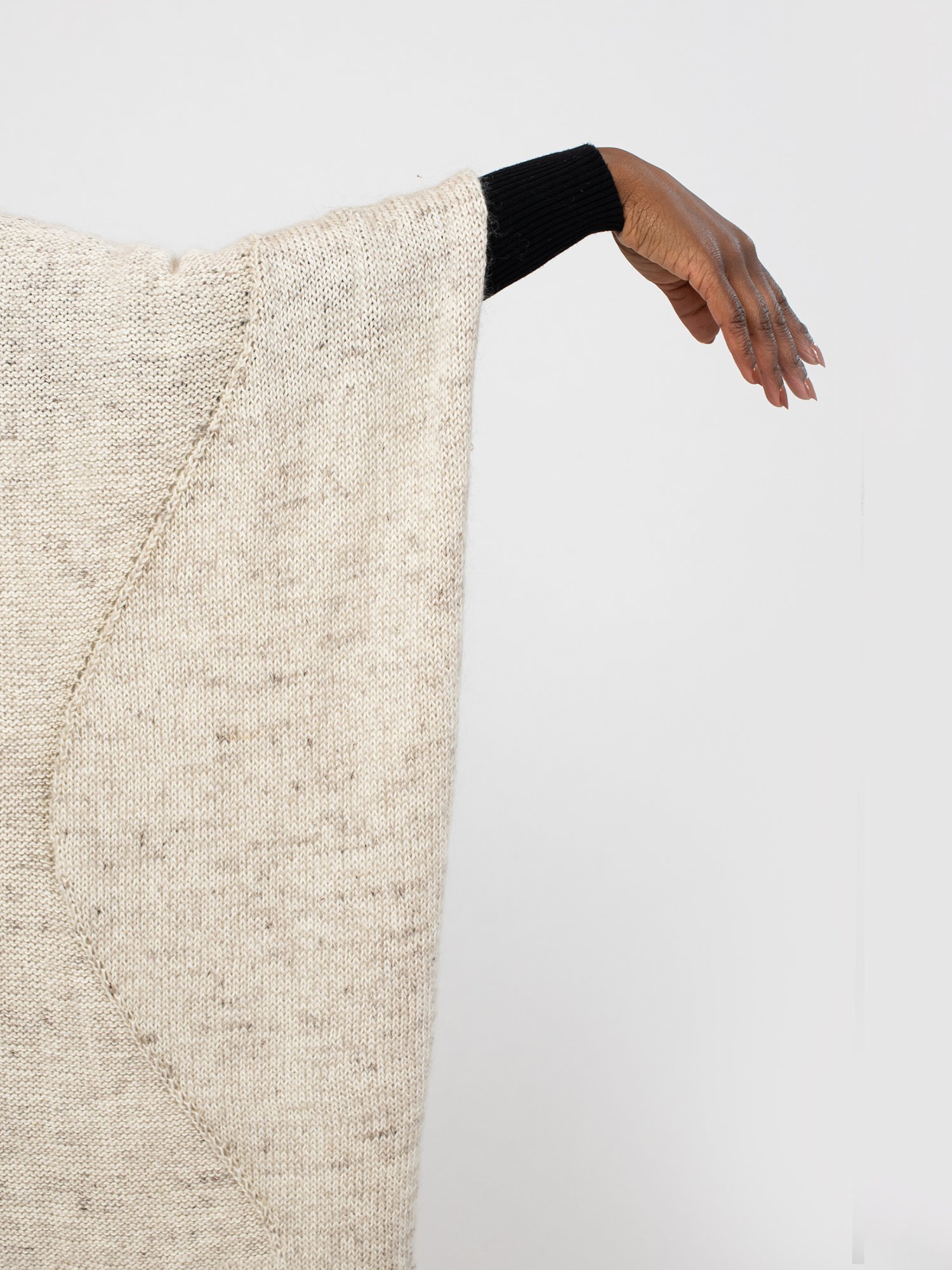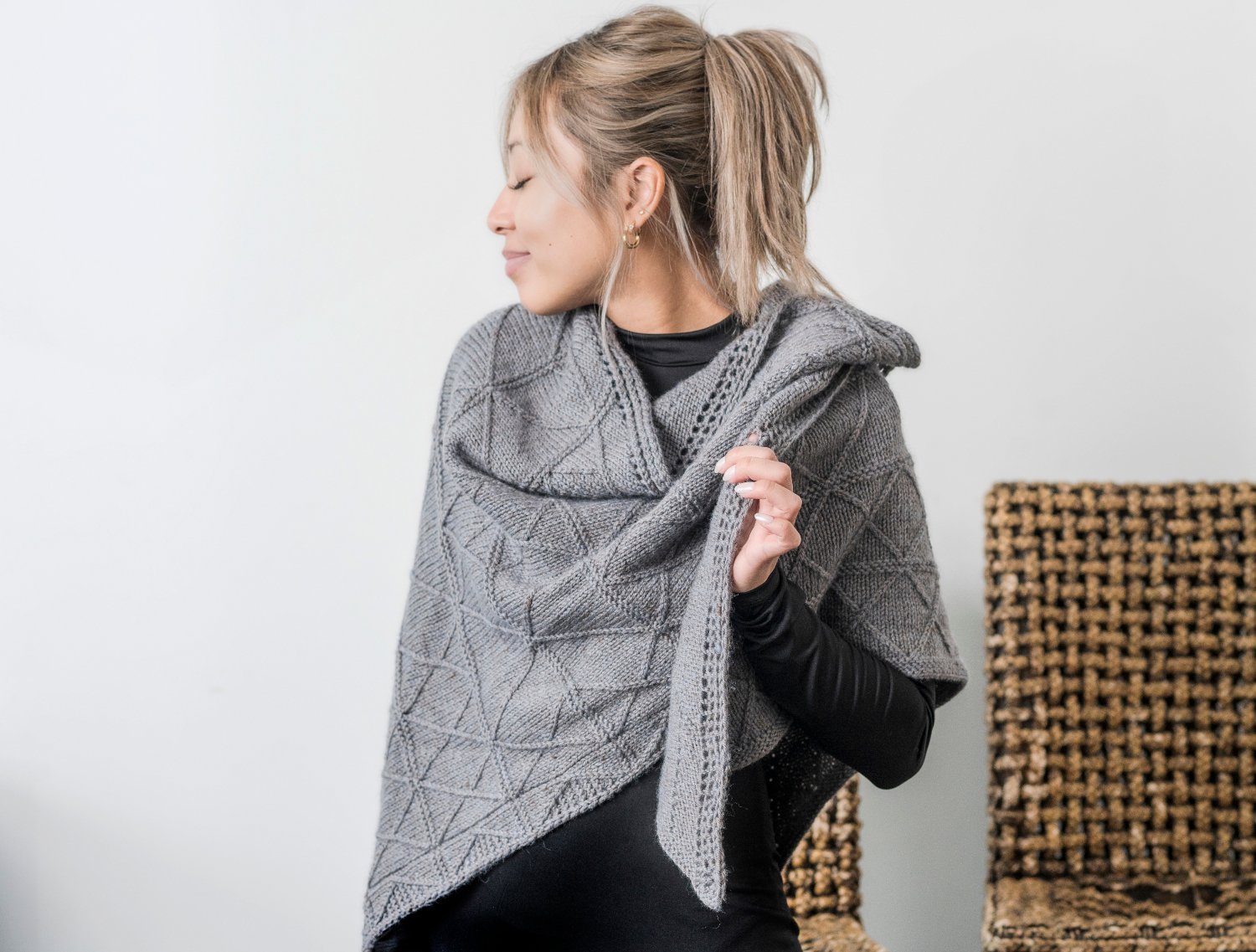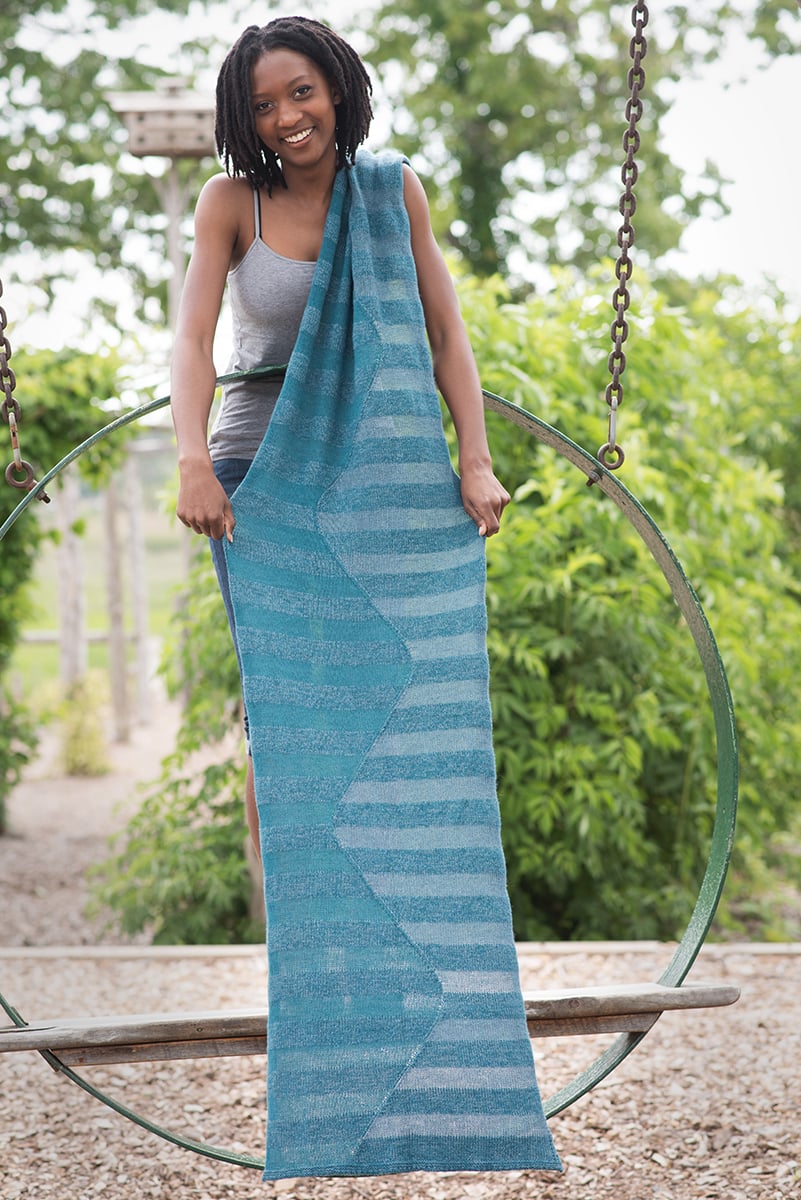Velouria
On Sale
$8.00
$8.00
Maai’s light, velvety fabric and Lunar’s luxurious sheen contrast in geometric patterns for this modern wrap. Velouria’s V shape is easily styled a variety of ways for an effortlessly dramatic look. Velouria is worked flat from the centre out: first you make the chevron ‘spine’, then you pick up stitches to work each side. The wings are worked on the bias, ending with a slipped stitch pattern that mimics corrugated ribbing. To make Velouria, you need to know how to knit, purl, increase, decrease, and slip stitches. Pattern instructions are written; border pattern is both charted and written. Modeled by Josephine Ankarah, who is 5 ft 7 in/170 cm tall.
Yarn
Shibui Knits Maai; Tar: 7 skeins
Shibui Knits Lunar; Fjord: 1 skein (Lunar is held double throughout.)
Needles
US 6/4.0 mm straight or circular, or size needed for correct gauge
US 7/4.5 mm straight or circular, or one size larger than gauge needle
Notions
2 stitch markers, yarn needle
About the yarns
Shibui Maai is a chainette DK weight yarn in superbaby alpaca and merino. Constructed as a fine I-cord, Maai is very springy to knit, with little stitch definition. Worked alone in stockinette stitch, Maai makes a soft, warm, cohesive fabric with exceptional lightness and wonderful drape. It would be difficult to find a close substitute for Maai, so if you’re choosing another yarn for this project, find one that gives a lightweight fabric that you like at the pattern’s gauge. A different yarn will require different yardage, too; for a rough idea, though, the sample took most of 7 skeins of Maai.
Shibui Lunar is a laceweight yarn made up of 3 plies of 60/40 merino/silk. The high percentage of mulberry silk in this yarn gives it a wonderful sheen and depth of colour. If you’re looking to substitute another yarn for Lunar, look for a lace to light fingering weight yarn that contrasts in both texture and colour with your main yarn. (Shibui Pebble would be interesting in this design, for instance.) You could also use a DK weight held single. You will need approximately 335 yds/306m (half that if using a single strand of DK).
Photos © Gale Zucker.
Yarn
Shibui Knits Maai; Tar: 7 skeins
Shibui Knits Lunar; Fjord: 1 skein (Lunar is held double throughout.)
Needles
US 6/4.0 mm straight or circular, or size needed for correct gauge
US 7/4.5 mm straight or circular, or one size larger than gauge needle
Notions
2 stitch markers, yarn needle
About the yarns
Shibui Maai is a chainette DK weight yarn in superbaby alpaca and merino. Constructed as a fine I-cord, Maai is very springy to knit, with little stitch definition. Worked alone in stockinette stitch, Maai makes a soft, warm, cohesive fabric with exceptional lightness and wonderful drape. It would be difficult to find a close substitute for Maai, so if you’re choosing another yarn for this project, find one that gives a lightweight fabric that you like at the pattern’s gauge. A different yarn will require different yardage, too; for a rough idea, though, the sample took most of 7 skeins of Maai.
Shibui Lunar is a laceweight yarn made up of 3 plies of 60/40 merino/silk. The high percentage of mulberry silk in this yarn gives it a wonderful sheen and depth of colour. If you’re looking to substitute another yarn for Lunar, look for a lace to light fingering weight yarn that contrasts in both texture and colour with your main yarn. (Shibui Pebble would be interesting in this design, for instance.) You could also use a DK weight held single. You will need approximately 335 yds/306m (half that if using a single strand of DK).
Photos © Gale Zucker.


